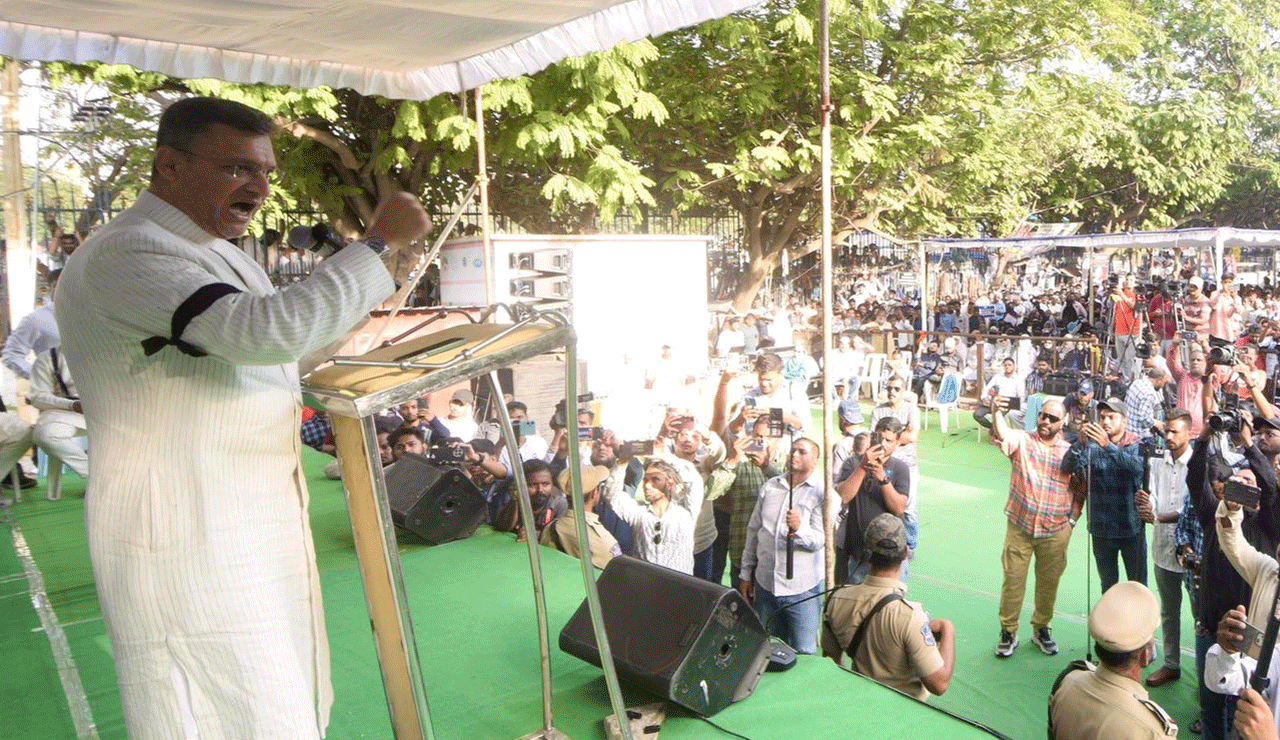Hyderabad Roars in Protest: AIMPLB Calls for Unity Against Waqf Amendment
The All-India Muslim Personal Law Board (AIMPLB), in collaboration with AIMIM and various Muslim organizations, staged a massive dharna and public meetings at Indira Park, Hyderabad, on Sunday.

Hyderabad: The All-India Muslim Personal Law Board (AIMPLB), in collaboration with AIMIM and various Muslim organizations, staged a massive dharna and public meetings at Indira Park, Hyderabad, on Sunday. The protest was held to demand the immediate rollback of the Waqf Board (Amendment) Act, 2025, enacted by the Central Government.
Table of Contents
Leaders Unite Against Waqf Amendment Act
Key figures such as Akbaruddin Owaisi, Maulana Sayipullah Rahmani (President of AIMPLB), MIM MLAs, and several religious and community leaders were present at the event.
Akbaruddin Owaisi, speaking to the large gathering, urged religious leaders and Muslim organizations to unite and intensify the movement.
Also Read: IIT Hyderabad Zone Students Dominate Top 20 Ranks in JEE Advanced 2025
“The AIMIM will give its full support to this struggle,” he said, emphasizing collective resistance.
AIMPLB: Amendment is Anti-Constitutional
Maulana Saifullah Rahmani, President of the AIMPLB, criticized the central government for enacting legislation that he said violates constitutional principles and interferes with the personal rights of Muslims.
“Since the BJP came to power, attacks on Dalits, Adivasis, and Muslim minorities have intensified,” Rahmani stated. He called for solidarity among all marginalized communities to counter what he termed as divisive governance.
Mass Participation Reflects Public Sentiment
The dharna saw participation from thousands of Muslims, civil society members, and rights activists. Protesters carried placards and raised slogans demanding the repeal of the Waqf Board (Amendment) Act, 2025.
Background: Why the Waqf Amendment Act Is Controversial
The amended Act has drawn criticism for allegedly reducing the autonomy of Waqf Boards, altering property management rights, and increasing central oversight — all seen by critics as an infringement on religious and minority rights.
Call for Nationwide Solidarity
Leaders from AIMPLB and AIMIM emphasized that this was not just a religious issue, but a broader constitutional and human rights concern. They called on intellectuals, people’s movements, and secular groups to support the cause.
